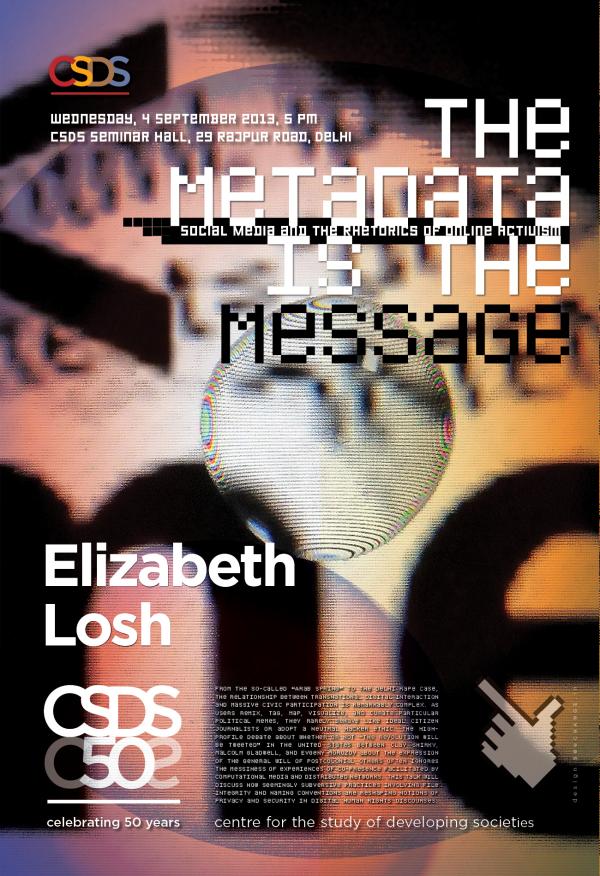Elizabeth Losh delivered a lecture on The Metadata is the Message: Social Media and the Rhetorics of Online Activism on 4th September 2013.
Abstract:
From the so-called “Arab Spring” to the Delhi rape case, the relationship between transnational digital interaction and massive civic participation is remarkably complex. As users remix, tag, map, visualize, and curate particular political memes, they rarely behave like ideal citizen journalists or adopt a neutral hacker ethic. The high-profile debate about whether or not “the revolution will be tweeted” in the United States between Clay Shirky, Malcolm Gladwell, and Evgeny Morozov about the expression of the general will of postcolonial others often ignores the messiness of experiences of co-presence facilitated by computational media and distributed networks. This talk will discuss how seemingly subversive practices involving file integrity and naming conventions are reshaping notions of privacy and security in digital human rights discourses.
Date and Time:
Wednesday, September 04, 2013, at 5 pm.
Location:
Seminar Room, Sarai, Centre for the Study of Developing Societies, #29 Rajpur Road, Civil Lines, New Delhi. Nearest Metro Station is Civil Lines.
About the Speaker:
Elizabeth Losh directs the Culture, Art, and Technology program at Sixth College at the University of California, San Diego, where she teaches media history, digital literacy, online communication, and critical theory. She is the author of Virtualpolitik: An Electronic History of Government Media-Making in a Time of War, Scandal, Disaster, Miscommunication, and Mistakes and the forthcoming The War on Learning: Gaining Ground in the Digital University and is the co-author of Understanding Rhetoric: A Graphic Guide to Writing with Jonathan Alexander. She has published articles about the politics of new media, e-government initiatives, the digital humanities, software-specific labor cultures, and the rhetoric surrounding regulatory attempts to limit everyday digital practices.
Recording:
The audio file is hosted by the Internet Archive.
Please note that the file is shared under Creative Commons Attribution-NonCommercial-ShareAlike 4.0 International license.
